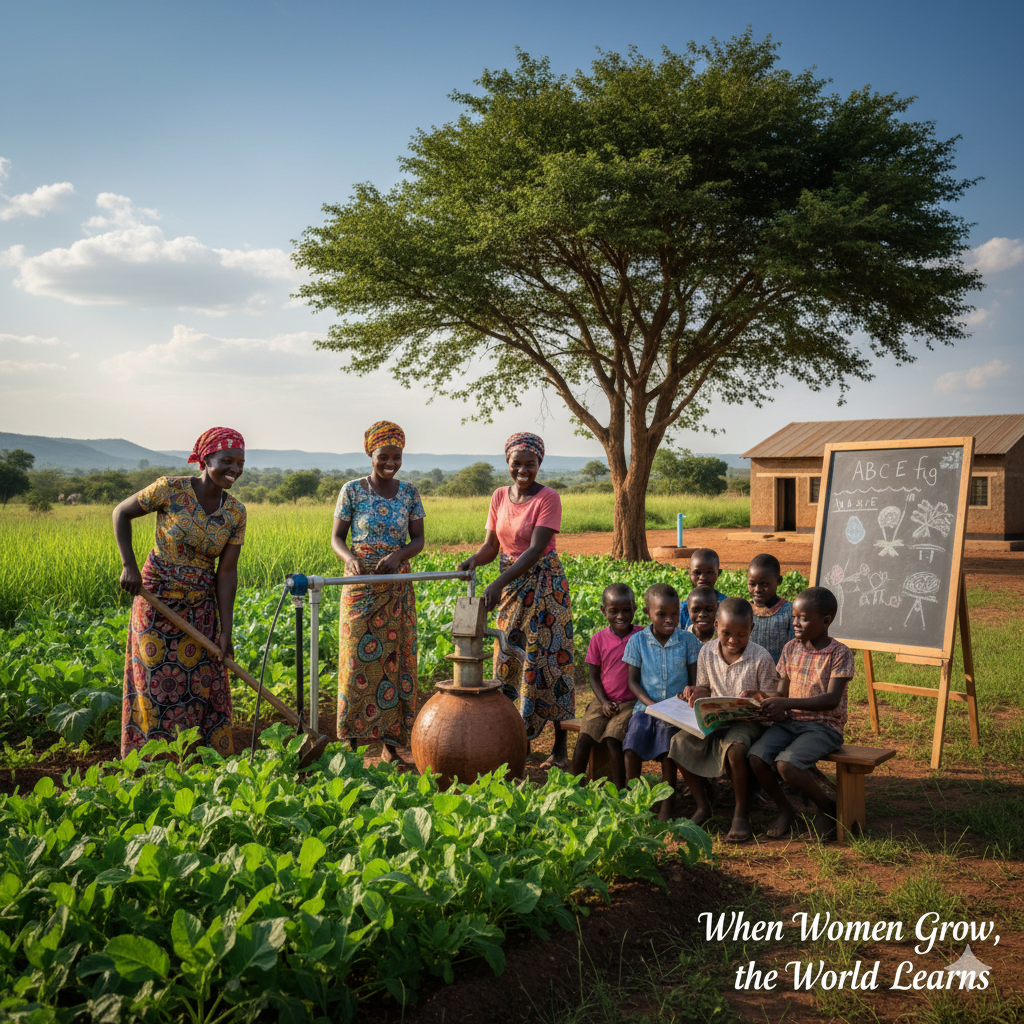Around the world and especially across Africa, women quietly carry the weight of food systems and household water management. They plant, tend and harvest. They fetch water, feed their families and make countless small decisions that determine whether a child eats, studies and stays in school. Yet too often these contributions are undervalued or unsupported.
Why this matters
Investing in women farmers and ensuring water access is not only a matter of fairness; it is central to the health of families, the resilience of communities, and the education of children. Secure water and productive agricultural livelihoods create a direct pathway to better nutrition, higher incomes and school attendance.
The connection: agriculture, water and education
When women gain access to irrigation, improved seeds, fertiliser and extension services, productivity rises. That extra yield translates into cash that pays for school fees, uniforms and supplies. Better nutrition improves children’s attention and performance. Reduced time spent collecting water or doing labour-intensive tasks frees caregivers to support children’s learning. And when girls see women leading farms and co-ops, their aspirations grow.
Barriers that must be removed
- Land and water inequities. Women often have smaller plots and limited rights to irrigation.
- Limited access to inputs and training. Extension services and technology reach men more often than women.
- Time burdens. Long hours collecting water and managing the home reduce time for economic activity and child support.
- Cultural norms. Gender roles can limit women’s decision-making power and access to finance.
Practical, high‑impact actions
Change doesn’t require reinventing the wheel. Programmes that intentionally combine water, agriculture and education deliver outsized results. Key actions include:
- Invest in gender-responsive irrigation and water systems to reduce drudgery and increase cropping opportunities for women.
- Deliver agricultural training directly to women—timed and designed for their schedules and realities.
- Organise women-led cooperatives to improve access to inputs, collective marketing and bargaining power.
- Link agriculture programmes with education initiatives so income gains and food security translate into school enrolment and learning outcomes.
What organisations and donors can do
Donors and NGOs should prioritise multi-sectoral projects that blend water infrastructure, agricultural extension and education support. Governments can update policies to secure women’s water and land rights. Private sector actors can design inclusive supply chains and gender-responsive finance products.
Stories that change behaviour
Real impact spreads through stories. When a mother uses irrigation to double her harvest and sends her children to school, that family’s choice becomes the evidence neighbours need to change. Documenting and amplifying those stories helps unlock funding and policy support.
Call to action
Investing in women farmers and water access is an investment in classrooms, futures and nations. If you lead a donor agency, NGO, school, or community group, design programmes that place women and water at the centre of education strategies. If you are a reader, share this message, support local women’s co-ops, and advocate for gender-responsive agricultural policy.
Partner with AgroEnterprise Mission

